The Ketogenic Diet has rapidly gained popularity as a powerful approach to weight loss and overall health improvemnt. This low-carb, high-fat diet shifts the body’s metabolism into ketosis, encouraging it to burn fat for energy instead of carbohydrates. Many people are curious about the benefits of the Ketogenic Diet, including its effectiveness for weight management and its potential therapeutic uses in treating neurological disorders. With a structured 7-Day Keto Plan, individuals can easily navigate the types of ketogenic diets and discover the best keto diet foods that suit their lifestyle. If you’re eager to explore the transformative effects of the keto diet for weight loss and beyond, this article will guide you through the essential components of this revolutionary eating plan.
The Keto Diet, often referred to as a low-carb, high-fat eating regimen, has emerged as a trend among those seeking effective weight loss methods. This dietary approach focuses on drastically reducing carbohydrate intake while increasing fat consumption, leading to a metabolic state known as ketosis. Many enthusiasts highlight the diverse types of ketogenic diets tailored to different preferences, along with the numerous benefits of following such a plan. From therapeutic applications in managing diabetes to the appealing 7-Day Keto Plan designed for beginners, there’s much to discover about the foods that fuel this lifestyle. Embracing the Keto Diet can be a game-changer for individuals looking to enhance their health and shed unwanted pounds.
Ketogenic Diet
Rollin Turner Woodyatt, one of the pioneers of the ketogenic diet, laid the foundations of this nutritional model with the theories he developed in 1921. His work has inspired many scientific studies over the years and contributed to our understanding of the effects of the ketogenic diet on health.
The ketogenic diet, commonly referred to as the keto diet, is a low-carbohydrate, high-fat dietary regimen that has gained immense popularity due to its potential health benefits. This diet primarily focuses on reducing carbohydrate intake while increasing fat consumption, which drives the body into a metabolic state known as ketosis. During ketosis, the body becomes highly efficient in burning fat for energy, rather than relying on carbohydrates. This shift not only facilitates weight loss but also provides an alternative energy source for the brain through ketones, which are produced from fats in the liver.

In essence, the ketogenic diet is more than just a weight-loss strategy; it has applications in managing various health conditions, including diabetes, epilepsy, and certain neurological disorders. By significantly lowering carbohydrate intake and replacing it with healthy fats, individuals can experience improvements in blood sugar levels, insulin sensitivity, and overall metabolic health. The increasing popularity of the 7-Day Keto Plan further emphasizes the diet’s effectiveness, making it an appealing choice for those seeking a structured approach to dietary changes.
Types of Ketogenic Diets Explained
There are several variations of the ketogenic diet, each tailored to meet different dietary needs and health goals. The Standard Ketogenic Diet (SKD) is the most commonly followed version, characterized by a very low carbohydrate intake, moderate protein consumption, and high fat intake. Typically, this involves consuming approximately 75% of total daily calories from fats, 20% from protein, and only 5% from carbohydrates. This balance helps individuals achieve and maintain ketosis effectively.
Other variations include the Cyclical Ketogenic Diet (CKD), where periods of higher carbohydrate intake are interspersed with days of strict keto, and the Targeted Ketogenic Diet (TKD), which allows for additional carbs around workout times. Another option is the High-Protein Ketogenic Diet, which includes a higher proportion of protein while still maintaining a low carbohydrate level. Understanding these types can help individuals choose the best plan that aligns with their lifestyle and dietary preferences, ensuring a more sustainable approach to the ketogenic diet.
Benefits of the Ketogenic Diet
The ketogenic diet offers a myriad of health benefits that extend beyond mere weight loss. One of the most significant advantages is its ability to help manage and improve metabolic health, particularly for individuals with conditions like type 2 diabetes. By reducing carbohydrate intake, the keto diet can lead to lower blood sugar levels and improved insulin sensitivity, making it a beneficial option for those struggling with blood sugar imbalances.
Moreover, research indicates that the ketogenic diet may have neuroprotective effects, aiding in the management of neurological disorders such as epilepsy and Alzheimer’s disease. The production of ketones during ketosis serves as an alternative energy source for the brain, potentially reducing symptoms and slowing disease progression. Additionally, the keto diet has been linked to improved cholesterol levels and reduced risk factors for heart disease, making it a multi-faceted approach to enhancing overall health.
Risks and Considerations of the Ketogenic Diet
While the ketogenic diet can provide numerous benefits, it is not without its risks and considerations. One common concern is the so-called ‘keto flu,’ which can occur as the body adjusts to ketosis. Symptoms may include fatigue, headaches, irritability, and digestive discomfort. These side effects can be challenging for some individuals, particularly during the initial stages of the diet. It is essential for anyone considering the ketogenic diet to be aware of these potential issues and consult with a healthcare professional, especially if they have existing health conditions.
Additionally, the ketogenic diet may not be suitable for everyone, particularly those with specific metabolic disorders or individuals who require higher carbohydrate intake for energy due to their lifestyle or physical demands. It is crucial to assess personal health needs and goals before embarking on this dietary journey. For those who can safely adopt the keto lifestyle, careful planning and monitoring of nutrient intake can help mitigate risks and enhance the diet’s effectiveness.
Foods to Embrace on a Ketogenic Diet
A successful ketogenic diet relies heavily on the types of foods consumed. The foundation of this diet includes healthy fats, lean proteins, and low-carb vegetables. Ideal food choices encompass high-fat meats like beef, pork, and chicken, as well as fatty fish such as salmon and mackerel. Eggs and full-fat dairy products are also staples, providing essential nutrients while keeping carbohydrate intake low. Incorporating healthy fats from sources like avocados, olive oil, and nuts is crucial for maintaining energy levels and promoting satiety.
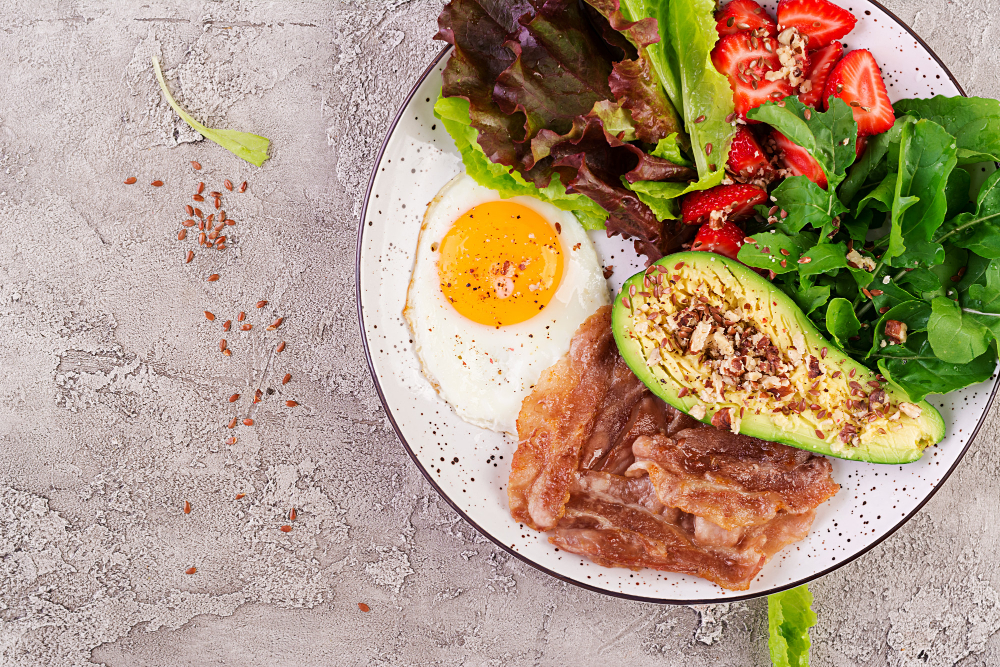
In addition to proteins and fats, low-carb vegetables such as leafy greens, cauliflower, and zucchini are excellent choices that add fiber and micronutrients without significantly impacting carbohydrate limits. Understanding which foods fit within the ketogenic framework is vital for maintaining ketosis and reaping the full benefits of the diet. Following a well-structured list of keto-friendly foods can simplify meal planning and ensure that individuals stay on track with their dietary goals.
Foods to Avoid on a Ketogenic Diet
To successfully adhere to a ketogenic diet, it is equally essential to know which foods to avoid. High-carbohydrate foods such as grains, sugar-laden snacks, and starchy vegetables can quickly sabotage efforts to maintain ketosis. Common culprits include bread, pasta, rice, and sugary treats like cakes and cookies. These foods significantly increase carbohydrate intake and can prevent the body from entering or staying in ketosis.
Additionally, fruits, while generally considered healthy, can also contain high levels of sugar, making them less suitable for a keto diet. It’s important to limit or eliminate foods like bananas, apples, and grapes, opting instead for lower-sugar options like berries in moderation. By being mindful of food choices and avoiding high-carb options, individuals can better navigate their ketogenic journey and enhance weight loss and health benefits.
Your 7-Day Ketogenic Diet Plan
Following a structured 7-day ketogenic diet plan can significantly ease the transition into this new eating style. This plan typically begins with simple, low-carb meals that focus on high-fat, moderate-protein foods. For example, breakfast options may include eggs cooked in butter and served with avocado, while lunches might consist of salads topped with olive oil and grilled chicken. Snacks such as nuts or cheese can help curb hunger between meals.
As the week progresses, it’s essential to maintain variety and ensure proper nutrition. Incorporating different sources of protein and fats, along with a range of low-carb vegetables, will help prevent monotony and encourage adherence. The 7-day plan serves not only as a guide for meal preparation but also as a way to familiarize oneself with the types of foods that fit within the ketogenic framework, ultimately paving the way for long-term success.
Ketogenic Diet Snacks for Sustained Energy
Snacking on a ketogenic diet requires careful selection to ensure that choices align with dietary goals. Opting for high-fat, low-carb snacks can help maintain energy levels and prevent unnecessary hunger pangs. Excellent snacks include cheese, which is rich in fats and protein, and a handful of nuts or seeds, which provide healthy fats and essential nutrients. These snacks are not only satisfying but also convenient for those on-the-go.
Other great options include boiled eggs, which are portable and packed with protein, and olives, which offer healthy fats and a savory flavor. Low-carb milkshakes made with almond milk, nut butter, and cocoa powder can satisfy sweet cravings while keeping carbohydrate intake low. By preparing healthy snacks in advance, individuals can successfully navigate their ketogenic journey and support their weight loss and health objectives.
Frequently Asked Questions
What is a Ketogenic Diet?
The ketogenic diet, commonly referred to as the keto diet, is a low-carbohydrate, high-fat diet that aims to put the body into a metabolic state called ketosis. In this state, the body becomes efficient at burning fat for energy instead of carbohydrates, leading to various health benefits including weight loss, improved blood sugar control, and enhanced mental clarity.
What are the Types of Ketogenic Diets?
There are several types of ketogenic diets, primarily designed for weight loss and health improvements. The Standard Ketogenic Diet (SKD) is low in carbs and high in fats. The High-Protein Ketogenic Diet incorporates more protein, while the Cyclical Ketogenic Diet involves cycling between high-carb and low-carb days. Lastly, the Targeted Ketogenic Diet allows for carb intake around workouts.
What are the Benefits of the Ketogenic Diet?
The benefits of the ketogenic diet include significant weight loss, reduced blood sugar and insulin levels, improved cholesterol levels, and potential therapeutic effects for neurological disorders such as epilepsy and Alzheimer’s. The 7-Day Ketogenic Diet Plan can lead to weight loss while providing essential nutrients through healthy fats and proteins.
What Foods Can I Eat on a Ketogenic Diet?
On a ketogenic diet, you can enjoy a variety of foods including meat, fatty fish, eggs, butter, cheese, nuts, seeds, avocados, and low-carb vegetables like leafy greens, broccoli, and cauliflower. These foods are low in carbs and high in healthy fats, making them ideal for maintaining ketosis.
What Foods Should be Avoided on a Ketogenic Diet?
Foods to avoid on a ketogenic diet include sugary foods, grains, fruits (except for small portions of berries), root vegetables, legumes, and unhealthy fats. High-carb foods can disrupt ketosis, so it’s important to stick to low-carb options to successfully follow the keto diet.
Can I Lose Weight on the 7-Day Ketogenic Diet?
Yes, studies indicate that individuals following the 7-Day Ketogenic Diet can lose weight more effectively compared to traditional low-fat diets. The ketogenic diet promotes fat burning and can improve body composition, making it a popular choice for weight loss.
Is the Ketogenic Diet Suitable for People with Diabetes?
While some studies suggest that the ketogenic diet may benefit individuals with type 2 diabetes by improving blood sugar control, it’s essential for affected individuals to consult healthcare professionals before starting the diet. The Mediterranean diet is often recommended as a safer alternative for managing diabetes.
What Happens if the 7-Day Ketogenic Diet is Compromised?
If you consume high-carb foods while on the ketogenic diet, you will exit ketosis. To regain ketosis, you need to return to strict adherence to the ketogenic diet. It’s crucial to monitor your carb intake to maintain the benefits of the 7-Day Ketogenic Diet.
Which Vegetables are Eaten on a Ketogenic Diet?
Ketogenic diet recipes often include low-carb vegetables such as leafy greens (spinach, kale), cauliflower, broccoli, zucchini, and bell peppers. These vegetables are not only low in carbohydrates but also rich in essential nutrients, making them ideal for the keto diet.
What Can be Eaten Instead of Bread on a Ketogenic Diet?
Instead of traditional bread, you can opt for ketogenic-friendly alternatives such as almond flour bread, coconut flour bread, or cloud bread. These options allow you to enjoy a bread-like experience while remaining compliant with the ketogenic diet.
| Key Points | Details |
|---|---|
| What is a Ketogenic Diet? | A low-carb, high-fat diet that promotes ketosis to burn fat for energy. |
| Types of Ketogenic Diets | Standard, Cyclical, Targeted, and High-Protein keto. |
| Benefits of the Ketogenic Diet | Weight loss, improved cholesterol levels, and benefits for epilepsy and other conditions. |
| Dangers of the Ketogenic Diet | Not suitable for everyone; may cause side effects like keto flu. |
| Foods to Eat | Meat, fatty fish, eggs, nuts, healthy fats, low-carb vegetables. |
| Foods to Avoid | Sugary foods, grains, high-carb fruits, beans, starchy vegetables. |
| 7-Day Ketogenic Diet Plan | Daily meal plans focusing on low-carb and high-fat foods. |
| Ketogenic Diet Snacks | Cheese, nuts, olives, boiled eggs, low-carb shakes. |
| Frequently Asked Questions | Includes questions about vegetables, alternatives to bread, weight loss, and suitability for diabetics. |
Summary
The Ketogenic Diet is a low-carb, high-fat dietary approach that has gained popularity for its potential benefits in weight loss and managing certain health conditions. By significantly reducing carbohydrate intake and increasing fat consumption, the body enters a state of ketosis, where it efficiently burns fat for energy. This diet can offer various health benefits, including improved cholesterol levels and reduced symptoms of neurological disorders. However, it is essential to consider individual health conditions and the potential side effects of the diet. Overall, the Ketogenic Diet presents a unique and effective way to enhance overall health and well-being.

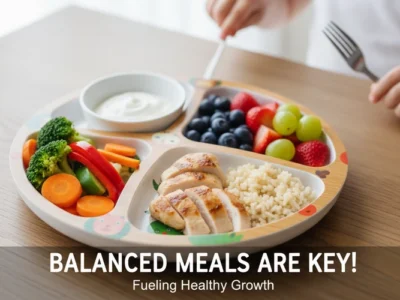


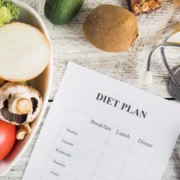



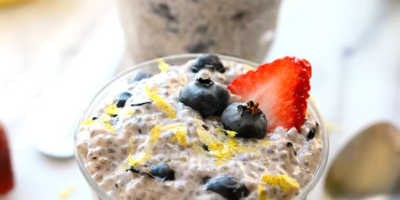
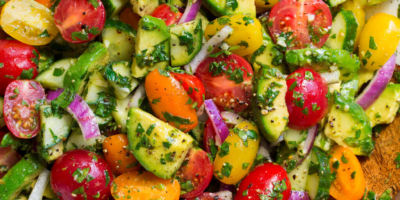
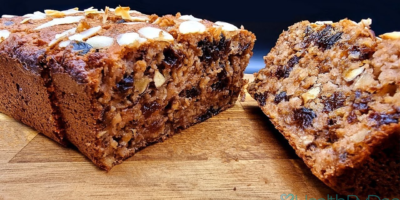




Comments